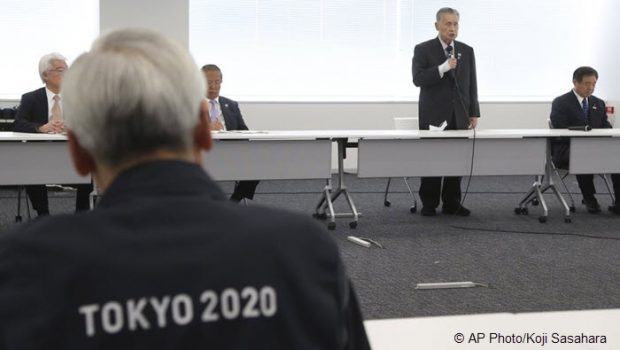Tokyo 2020: Navigating the reboot
Published on March 26th, 2020
Participation at the Tokyo 2020 Olympics was anticipated to include 206 countries and over 11,000 athletes for 339 events in 33 sports. It is a massive group kept on hold as the International Olympic Committee, the Japanese government, and Tokyo organizers pondered postponement.
Now with that decision made, the panic of preparing for competition amid an international health pandemic has been replaced by the uncertainty of what happens next.
Like most sports, World Sailing had not completed qualifiers to finalize the entry lists, and nations were still confirming their athletes for competition. But with the postponement alleviating the pressure, everyone is now scrambling on how to adjust to the reboot.
However, it will be an expensive reboot as money flows from the Olympics to nations and sports. Prior to the postponement, the U.S. Olympic & Paralympic Committee told Congress that America’s amateur sports organizations stand to lose as much as $800 million from coronavirus-driven cancellations, including the postponement of the 2020 Tokyo Games until next year.
And with the tenuous budget of World Sailing, lord knows how their situation will now unfold.
But for whatever disruption is occurring at the national or sport level, nothing is remotely close to what is being felt right now by the Olympic organizers. While postponing was a seemingly simple decision, the ramifications are substantial.
So far, the only firm decision is the name remains the same: Tokyo 2020. The number no longer reflects the year of the event but rather the piles of money spent on merchandise and branding. The rest of the decisions are going to be much harder as this AP report details:
(March 26, 2020) – The Tokyo Olympics need new dates for the opening and closing ceremonies in 2021.
Nothing much can get done until those dates are worked out by the International Olympic Committee, the Japanese government and Tokyo organizers.
“We must decide this soon, otherwise it will be hard to decide on other things to follow,” Toshiro Muto, the CEO of the organizing committee, told his 30 senior directors — all men but one — seated in a large meeting room on today.
Two days after the unprecedented postponement was announced, the group gathered for the first meeting of what is being called the “Tokyo 2020 New Launch Task Force.” They must put the Olympics back together after they were torn apart by the coronavirus pandemic.
Muto and the president of the organizing committee, Yoshiro Mori, each gave pep speeches. Mori, an 82-year-old former Japanese prime minister, drew on war memories from his youth to summon the resolve to redo in a few months what was seven years in the planning.
He talked of his father going “to the war in the Pacific” and leaving a rugby ball and a baseball glove behind for his young son.
“I’m sorry, I’m an old person and I talk about the old days,” Mori said. “I’m comparing this to the old days and I might be criticized by the media. However, this is the emotion I have inside me and this is the emotion I have as we face the predicament in front of us.”
Muto ran off a condensed string of issues to be resolved: ticketing, security, venues, merchandise, accommodation, the Athletes Village, transportation and lining up unpaid volunteers. He added he was looking at “thousands of contracts” and the interests of broadcasters, sponsors, the IOC, world sports federations and national Olympic committees.
“I didn’t imagine at all we’d be tested to this degree,” he acknowledged.
He also voiced another reality.
“Additional expenses are going to be quite massive we assume,” Muto said.
The Japanese financial newspaper Nikkei has estimated added costs due to the delay of $2.7 billion. This would go on top of an official budget of $12.6 billion. A Japanese national audit agency, however, says the actual amount of spending is about twice that size.
IOC President Thomas Bach said Wednesday that “all options are on the table” for new dates. He said next year’s Olympics don’t have to be restricted to summer in the Northern Hemisphere and might occur sooner.
Two of the marquee Olympic events — track and swimming — have already scheduled their own world championships for July and August of 2021.
If the Olympics are moved into spring, when it’s cooler in Tokyo, they clash with the end of the European soccer season. In North America, they would bump into Major League Baseball, NBA basketball, NHL hockey and possibly even college basketball. That’s assuming normal sports schedules resume by then.
“The postponed Olympic Games will need sacrifices,” Bach said.
Hidemasa Nakamura, the games delivery officer, was pressed again on dates.
“That’s something we haven’t decided on yet,” he said. “We have no idea when we will be able to finalize the dates. We don’t have a fixed plan how to proceed from here.”
MORE: The Tokyo Organizing Committee also posted a report on this new challenge: click here.










 We’ll keep your information safe.
We’ll keep your information safe.